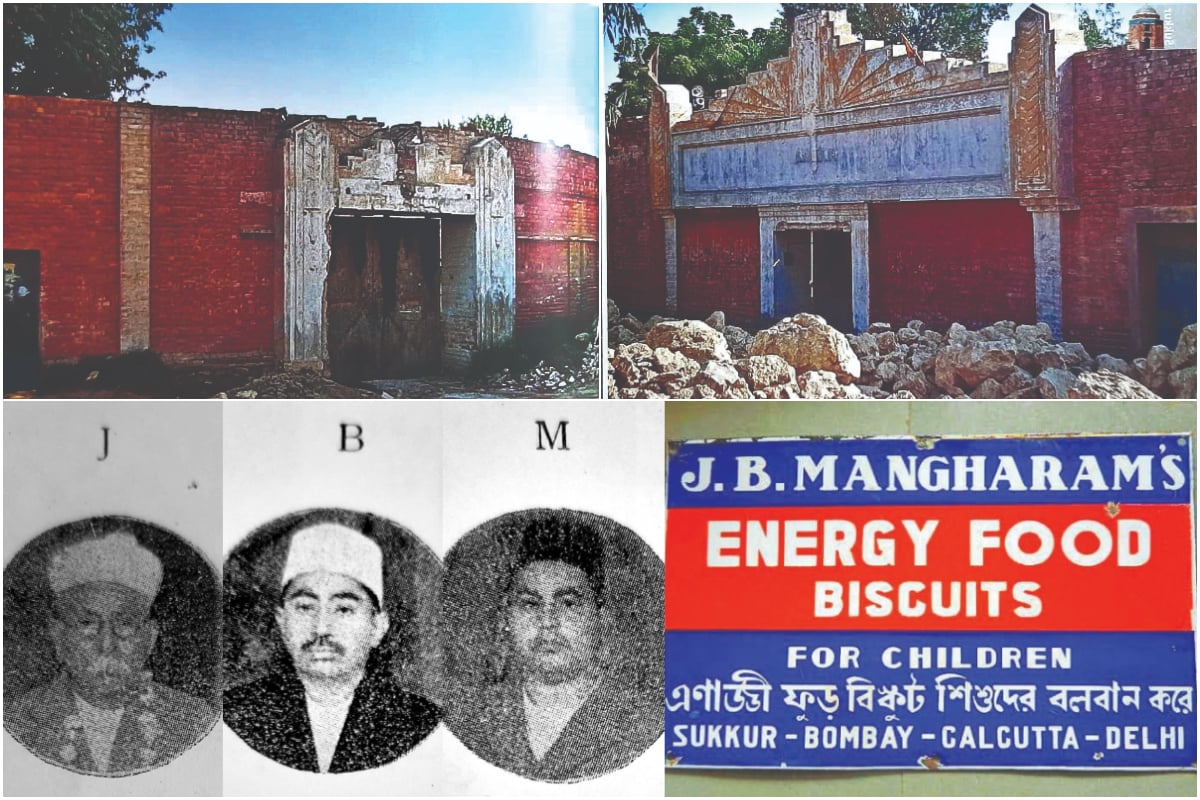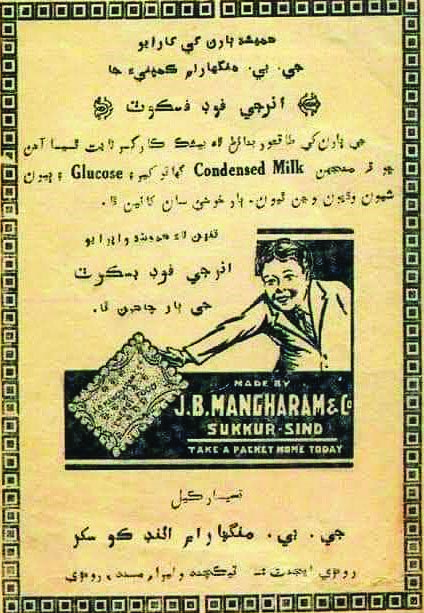
Named after three Hindu traders, JB ManghaRam Biscuit factory was built in Sukkur in 1919
Old is gold, and Upper Sindh’s districts including Sukkur, Shikarpur, Jacobabad, Ghotki and Khairpur prove just that.
These areas were historically inhabited by a large number of Hindus before the formation of Pakistan. Most of them were traders but they were very attached to three professions — welfare work, construction and trade.
Since they were very good traders, they built big factories. In this way, their business grew and at the same time, they provided employment to the people of Jeevan Das, Seth Bal Chand Pamanani and Seth Mangha Ram Pamanani who established JB ManghaRam Biscuit Factory in Bagh Hayat Ali Shah area of Sukkur city in 1919.
The name of this factory included the names of three Hindu traders. Not only were biscuits made in this factory but also candies, cakes of different flavors and sweet pills.
While medicines were made in one part of the factory, the factory also made aluminum, brass and copper utensils. Dozens of employees worked at the JB Mangharam Biscuit Factory, including women, sweets and tablets. Packed in a wrapper.
When JB Mangharam Biscuit Factory was set up inside Sukkur city as compared to big cities like Karachi and Hyderabad, no one thought that JB Mangharam Biscuit Factory was established not only in this area but also in other major cities of the subcontinent at that time. Branches were established in Bombay, Calcutta and Delhi, so biscuits, candies and sweet and sour pills made in a factory in a small town in Sindh became popular all over the subcontinent. People started using these products.

When work on the JB Mangharam Biscuit Factory began to grow, the three owners of the factory set up a large factory on Sukkur Shikarpur Road in 1935 to expand the production of biscuits.
In World War II, the biscuit factory was awarded a contract to make special energy biscuits for the British Army.
For the first time, energy biscuits were made from glucose from the JB Mangharam Biscuit Factory, which was supplied to the British Army, and the owners of the JB ManghaRam Biscuit Factory Made huge profits, it didn’t stop there.
After the order of biscuits for the British army was fulfilled, these energy biscuits were made for the children of this subcontinent. The business of JB Mangharam Biscuit Factory continued to grow rapidly.
When the movement for the formation of Pakistan started, riots broke out all over the subcontinent. This area of Sindh was also affected by riots and fighting. The same riots took place in Sukkur and surrounding areas.
The owners of JB Mangharam Biscuit Factory moved to India, Mangha Ram Pamanani settled in the Indian state of Gwalior and he also established a biscuit factory there, in 1950 this biscuit factory was also in the best and prominent position in terms of business Mangaharam Pamanani died in 1969.
Later the business of this biscuit factory started to be affected and most of the shares of this biscuit company were bought by UK Industries Limited and they changed the name of this company to UK Biscuits.
Thus, a biscuit factory and product from the small town of Sukkur in Sindh reached the UK via India. It was the vision of the Hindu traders living in Sindh at that time that they set up a biscuit factory in this part of Sindh. This biscuit factory did business worth millions of rupees all over the subcontinent.
People got a new taste in the world of biscuits and the people living in this area got employment opportunities, says Dr. Dawarka Das, a well-known doctor and senior citizen of Sukkur city. The Hindu traders who lived in the area before the formation of Pakistan loved the area very much and they were business minded so they set up factories in the area so that the people here could get employment and the area was economically viable.
The second thing is that the Hindu merchants used to build their big and good houses in the same area and build hospitals and educational institutions to develop their own area.
After Partition, a large number of Sindhi Hindus migrated to India and the world. Moved to many countries but they love their Sindh land wherever they are in the world, they speak Sindhi language and remember these areas of Sindh. The owners of JB Mangharam Biscuit Factory also showed their love for the land. They set up a biscuit factory in the same area even though they could have set up their own biscuit factory in big cities like Karachi, Bombay, Calcutta or Delhi. A biscuit factory was set up in Sukkur and thus the name of Sukkur and the products made here went all over the world.
According to Dr. Dawarka Das, the Hindus in Sindh did their best to participate in the welfare work and built such monumental buildings which still seem to tell the story of these Hindus only in Sukkur, Shikarpur, Khairpur, Jacobabad or Ghotki. The best buildings that the Hindus built in Hyderabad and Karachi before the formation of Pakistan are still there today and the charities that were established in that era still serve the people without any discrimination. This is the right way to live in the world. That is to say, serve others and help them. This is what the majority of Hindus living in this part of Sindh used to do. They used to do public welfare work. Fortunately, none of JB Mangharam Pamanani is alive today, but the city of Sukkur is known internationally for the work he has done.
Catch all the Breaking News Event and Latest News Updates on The BOL News
Download The BOL News App to get the Daily News Update & Live News.












 Read the complete story text.
Read the complete story text. Listen to audio of the story.
Listen to audio of the story.